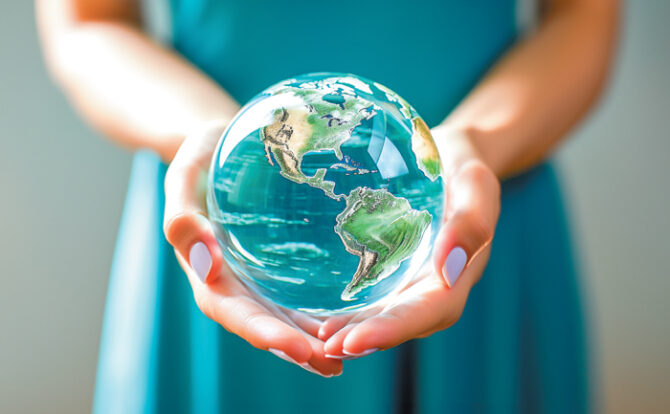
【Five goals, including gender equality, are rated as "serious challenges"】
The Sustainable Development Goals (SDGs) are international goals adopted unanimously at the United Nations Summit in 2015. Based on the basic principle of leaving no one behind, the SDGs were set as sustainable development goals by the international community to achieve a better and more sustainable future by 2030. The SDGs consist of 17 goals and 169 targets. This year marks the halfway point toward realizing the SDGs by 2030, but Japan's achievement ranking has dropped to 21st place, the lowest ever.
【What are the Sustainable Development Goals (SDGs)?】
The SDGs are often seen and heard on TV, in newspapers, and on the Internet. Many people may be familiar with them, as they have been covered in school classes. However, few people remember the details of the SDGs, so let's look back a little.
The SDGs are designed to solve environmental problems, discrimination, poverty, and human rights issues that the world is facing by 2030. Global leaders and experts gather at the World Economic Forum's Annual Meeting in Davos, Switzerland. At the Davos meeting, the World Economic Forum ( WEF) a nnounced t hat " by achieving the SDGs, at least $12 trillion in economic value and 380 million jobs will be created by 2030." Japan established "the SDGs promotion headquarters," headed by the Prime Minister. All Ministers formulate t he " SDGs Action Plan", which details various efforts of the Japanese Government to achieve the SDGs every year. Japan aims to take the lead in implementing the SDGs both domestically and internationally.
【The 17 SDG goals and their 169 targets】
Many people have already seen the 17 goals of the SDGs presented as colorful icons. However, for those who find it difficult to remember the 17 goals in detail, how about understanding them by grouping them into broader themes?
The top six goals can be summarized as themes related to "human life and rights," such as the eradication of poverty and hunger, and gender equality. The middle six goals focus on "economic activities," such as decent work, economic growth, and affordable clean energy. The third section includes "global challenges" such as climate change, environmental issues, peace, and justice.
In order to achieve these 17 goals, 169 targets have been established. However, the SDGs are voluntary and not mandatory.
【SDSN evaluates the achievement of SDGs】
On June 21, "the Sustainable Development Solutions Network (SDSN)," an international research organization in collaboration with the United Nations, announced "the 2023 edition of its Sustainable Development Report," which evaluates the achievement of SDGs in countries around the world. SDSN has published the SDGs achievement level, which is a score out of 100 for each country's efforts to achieve SDGs based on statistical data from the United Nations and research institutes since 2016.
Finland ranked at the top for the third consecutive year. Sweden came in second, and Denmark was third. European countries held all the top 20 positions. Japan has maintained its position in the top 10 since the 2016 survey but dropped to its lowest ranking of 21st place from 19th place last year.
The countries are rated in four grades for each of the 17 categories. The grades are " SDG achieved," "Challenges remain," "Significant challenges remain," and "Major challenges remain." Japan has already achieved two of the targets of the SDGs: "Quality Education" and "Industry, Innovation and Infrastructure," as it did last year. However, the five goals of "Gender Equality," "Responsible Consumption and Production," "Climate Action," "Life Below Water," and "Life On Land"were evaluated as "Serious challenges." Among the remaining 10 goals, five goals are rated as "Major challenges remain," including "No Poverty," and five goals are rated as "Significant challenges remain," including "Zero Hunger."
【Five goals rated as "serious challenges"】
It has been pointed out that there are serious challenges in achieving "Gender Equality." Japan’s poor performance stems from the slow progress in women’s participation in politics and economic activities. A typical example is the ratio of male to female members of parliament. The wage gap between men a nd women i s a lso s ignificant. These factors contribute to low evaluations.
In terms of "Responsible Consumption and Production," delays in waste prevention, reduction, and recycling have been indicated. Additionally, the increasing amount of plastic waste and the export of waste to developing countries are also significant problems.
"Climate Action," "Life Below Water," and "Life on Land" are all directly related to environmental issues. In order for countries and companies to actively engage in activities, it is essential to consider the global and natural environment. It is important to formulate and implement measures quickly.
【Global movements concerning the SDGs】
This SDSN report begins with the statement that "the SDGs are facing strong headwinds" and serves as a midterm report toward achieving the goals by 2030. It expresses a sense of crisis that "the SDGs are seriously off track." The global economy has been severely impacted by a series of COVID-19 crises since 2020, and the achievement of the SDGs, particularly in developing countries, has continued to decline. The report emphasizes that "the SDGs remain fundamental for the future we want" and strongly calls for financial assistance and investment through various international conferences, such as COP28. As individuals, there are many things we can do, such as saving energy and recycling waste. It is important to understand the principles of the SDGs in our daily lives.
